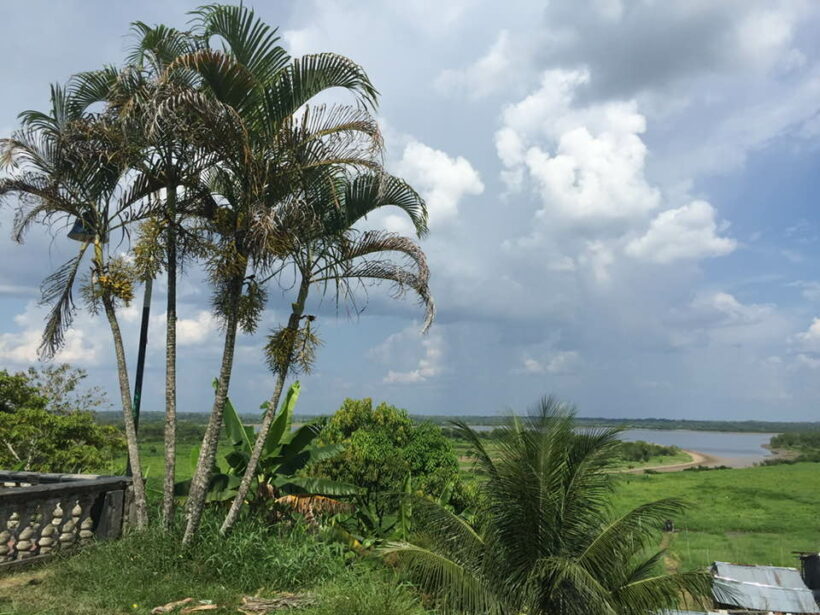Hurricane season and election season have converged in the United States. The prospect of catastrophic and irreversible climate change and the possible decline of democracy in the world are very real scenarios. The fate of these essential pillars of our society depends largely on what we all do in the coming months and weeks.
The climate catastrophe engulfing the planet requires a truly global solution, which the majority of the world’s population is eager to achieve. But the will of the people means less and less these days in the face of the growing number of governments that are spilling out under the control of autocratic leaders. We are talking about nationalists, racists, xenophobes and dogmatists, who are gaining power in country after country.
Italy is a prime example of this. Just this week, a neo-fascist political party – previously in the minority – won an absolute majority in national elections. Giorgia Meloni will thus become the first far-right leader to head the Italian government since Benito Mussolini was ousted in 1943. Speaking to Democracy Now!, Ruth Ben-Ghiat, a professor of history and Italian studies at New York University, said: “[Meloni] really sees her party as the bearer of the fascist heritage today. So much so that Ignazio La Russa, a veteran party leader, said a few days ago: ‘We are all heirs of the ‘duce’ [Mussolini]'”.
Meloni’s Brothers of Italy party is part of an increasingly powerful far-right movement in Europe that includes Poland’s ruling Law and Justice party, Spain’s Vox party, France’s National Rally party led by Marine Le Pen, and Sweden’s Democrats party, which grew out of that country’s neo-Nazi movement and is now poised to lead a new right-wing coalition government there. Similarly, Hungary’s Prime Minister Viktor Orbán is the model ‘strongman’ of the European right, a leader who restricts freedom of the press and speech, openly advocates racist and anti-immigration policies, criticises the European Union and opposes the integration of European countries.
Orbán, Meloni and other leaders of the European right have the backing of the US Republican Party and the man who hopes to become its “strongman”, Donald Trump. In fact, the Republican Party has purged its ranks of Trump critics and is rapidly organising in several states across the country to disregard the election results if they are not to their liking. Instead of storming the Capitol, as thousands of Trump supporters did on 6 January 2021, the party now has a plan to take power quietly. For this, it is counting on restricting voter turnout and other strategies with which to declare victory regardless of the outcome of the elections to be held in November 2024. Corrupt state legislatures and electoral maps rigged in favour of Republicans, as well as Trump-aligned governors and secretaries of state, have already set this plan in motion in order to consolidate more power in the midterm elections, which are just over a month away.
Trump has repeatedly claimed that climate change is a hoax. His European allies are not so blatant about it, but they are mostly in favour of expanding fossil fuel consumption and relying increasingly on nuclear power. Its unity also opposes UN-led negotiations to combat the climate change crisis.
This year’s “Conference of the Parties” to the Kyoto Protocol – dubbed COP27 – will be held in November in Sharm El-Sheikh, Egypt. A broad coalition of activists is calling on the military dictatorship led by Abdel Fattah el-Sisi to allow civic and environmental organisations to participate and to release the large number of political prisoners currently held in Egypt.
The UN Framework Convention on Climate Change often relies on dictatorships. Previous conference hosts have included Qatar and Morocco, countries where genuine protest is effectively banned. The 2023 Conference of the Parties will be held in the oil-rich city of Dubai in the United Arab Emirates. Let these UN climate change summits not be organised by authoritarian regimes.
Last April, reflecting on climate change activism in the wake of Russia’s invasion of Ukraine, environmentalist Bill McKibben wrote: “Part of the work of climate justice activists is to promote functioning democratic states, where people’s demands for a viable future have priority over vested interests, dogmas and personal fiefdoms”.
In countries where protest demonstrations are allowed to some extent, such as the United States, the stakes are high and time is short. Peter Kalmus, a NASA climate change scientist, understands this all too well. In April, Kalmus was arrested while demonstrating against the continued investments of the banking firm JP Morgan Chase in fossil fuel projects.
During an interview with Democracy Now! Kalmus said: “I keep shouting at the top of my lungs. I risk getting arrested. I’ve been forced to become a climate change activist. […] I am terrified by the inaction of world leaders who keep circling around the real issue, which is that we have to rapidly reduce the fossil fuel industry… This is bittersweet for me. We are finding exoplanets. We’re doing these incredible missions, like asteroid rerouting, but all that technology and all that knowledge is not helping to stop what is clearly the biggest threat facing humanity: global warming.
Hurricanes and drought have forced millions of people from their homes. This climate change-driven migration increases anti-immigrant sentiment in Europe and the US and further empowers racist xenophobes like Trump and Meloni.
The environment and democracy are under enormous threat. Our ability to weather this storm depends on the concerted action of a global majority that is serious about tackling increasingly difficult obstacles.










